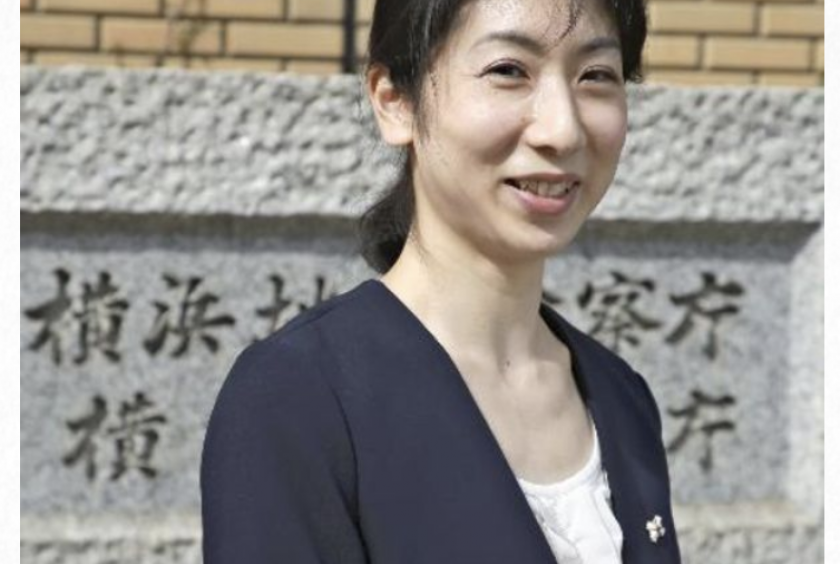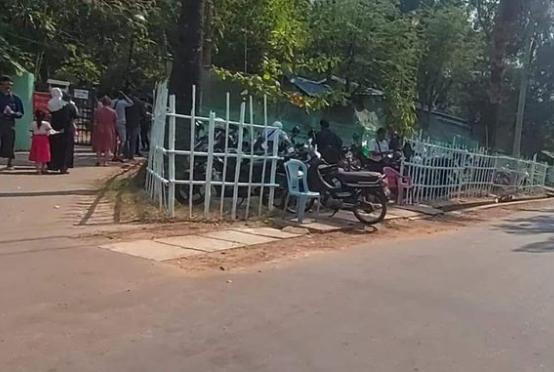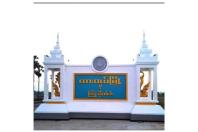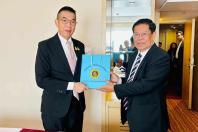
Tokyo (The Japan News) - The number of female prosecutors working at the Public Prosecutors Office and other places is increasing. As of the end of March 2018, 482, or 25 percent, of the nation’s 1,957 prosecutors were women.
The number has grown 60 percent from 10 years ago. The working environment for women is improving, and female prosecutors are assuming broader roles such as supporting crime victims.
Childcare applied to work
At the Yokohama District Public Prosecutors Office in Naka Ward, Yokohama, prosecutor Rieko Nakayama, 38, gathered her belongings a little after 5 p.m. and headed for a nursery school near her home to pick up her 4-year-old daughter.
Nakayama, who works in the criminal division of the prosecutors office, takes advantage of the “break time reduction system” to shorten her lunch time by 30 minutes and leave the office 30 minutes earlier than the standard time of 6:15 p.m. She also uses the “childcare time system” that allows employees with children to work 30 minutes less per day.
“I can advance my career even while raising children,” Nakayama said.
She became a public prosecutor in 2008, married her husband, a local government official, in the first year of her career, and gave birth to two children — a son who is now 8 and her daughter. She took about three years of maternity and childcare leave in total before returning to work in April 2016.
After her return, she began handling more domestic violence and child abuse cases. “Even though suspects are hesitant to speak at first, some open up after I tell them that I have my own worries about raising children. The experience of giving birth and raising kids helped expand the breadth of my work as a prosecutor,” she said.
In 1980, women accounted for only 2 percent of all prosecutors. However, as the percentage of women who passed the bar exam increased from around 10 percent to more than 20 percent, female prosecutors came to make up more than 10 percent of the total for the first time in 2001.
The rate has continued to increase by leaps and bounds. Of 69 new prosecutors appointed in December last year, 21, or 30 percent, were women. Meanwhile, six of the 50 district public prosecutors offices across Japan had female chief public prosecutors — the top position — as of January this year.
A work environment conducive to women continuing to work after getting married or giving birth has helped boost the number of female prosecutors. According to surveys conducted by the Health, Labor and Welfare Ministry and the National Personnel Authority in fiscal 2017, 83 percent of women working at private companies took childcare leave, while the rate was 100 percent at many central government ministries and agencies, including those related to judges and prosecutors.
The central government aims to raise the rate of female prosecutors to 30 percent by fiscal 2020. The Justice Ministry plans to increase the number of female prosecutors by setting up nursery schools at workplaces, among other measures.
Few in toughest departments
Female prosecutors are taking on more roles in the justice system, including dealing with children who were abused and women who were sex crime victims.
According to the National Police Agency, the number of child abuse cases has soared, increasing nearly four times from 357 cases 10 years ago to 1,355 cases (preliminary figure) in 2018. In investigations, it is necessary to arrive at an accurate understanding of the full situation surrounding the child abuse.
“Children who are victims of child abuse tend to be more willing to open up to women than men. Female prosecutors have significant presence,” a senior prosecutor said.
However, since prosecutors in principle take sole responsibility for investigating a case, it is difficult to take a day off for family-related reasons. Moreover, the introduction of the lay judge system has required prosecutors to thoroughly prepare in order to present evidence in a way that is easy to understand. As a result, the workload of prosecutors has increased.
In a district public prosecutors office in eastern Japan, a female prosecutor raising a child collapsed from overwork and resigned as a result.
Meanwhile, female prosecutors still comprise only a small percent of the workforce in difficult sections such as the special investigation department of the Tokyo District Public Prosecutors Office. No woman has assumed the post of superintendent public prosecutor at a high prosecutors office or above, one of the highest-ranking positions among judicial authorities and prosecutors.
Mariko Takeda, professor at Tsuda University and former vice chairwoman of the Japan Women’s Bar Association based in Tokyo, said: “Gender equality cannot be achieved just by increasing the number of female prosecutors. Women should not be treated differently from men in terms of work, such as having women handle cases of a specific type alone. Judicial authorities and public prosecutors offices are further required to create a working environment that enables women who marry and give birth to advance their careers.”
Percentage of female lawyers still low
On the other hand, women comprised 7,462 of about 40,000 lawyers in Japan as of March 2018, or 19 percent. The figure is lower than that for judges or prosecutors. Bar associations across the country are striving to create a work environment attractive to women through such measures as exempting women on childcare leave from paying membership fees and creating rules on the prevention of sexual harassment.
“We would like to strengthen measures to increase the number of female lawyers so that women can use legal services more easily,” Hiroko Takemori, vice president of the Japan Federation of Bar Associations, said.
http://the-japan-news.com/news/article/0005535094















